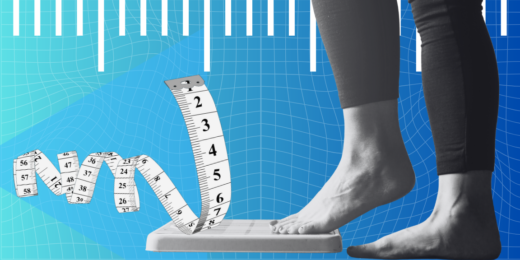A recent patient, who had just undergone an emergency surgery after his aorta ruptured, gave me a compliment that hit me like a brick: "I like that you're so efficient, but I can tell you're an older medical student because you've already learned to put up a wall to all my problems."
I am nearing the end of my pre-clinical years this month, and though I am far from becoming an MD, I realized he was correct. I had noted his medical history, run my fingers over the post-op scar on his chest, and witnessed his pained expressions while he told me about his recovery process, and felt like it was "business as usual." I, like many of my classmates, had subconsciously learned how to "put up a wall" between myself and this patient. I had already started to become desensitized to his pain.
Why does this happen during medical school? We have a human tendency to want to protect ourselves. Virtually all medical students have the desire to help people, and because of this, we are more prone to feel deeply for patients when they are hurt. We gain a greater understanding of disease processes as we advance in our training, though, and the additional knowledge of why our patients feel pain and how they may experience even more pain sets the level of grief so much higher than before. So we begin the process of desensitization, as a form of self-protection.
The amount of medical knowledge we must learn is colossal. It's no surprise that we can so easily lose ourselves in symptoms, diagnoses, treatments, and the intricate and intriguing mechanisms behind diseases - all words on paper - that it is so easy to turn our backs to the actual patient we set out to treat. We know that if we can focus on knowledge and facts, instead of feeling, we won't carry patients' pain home with us at the end of the day.
In addition, my colleagues and I are training during the rise of the electronic medical record, technology that should theoretically streamline health care. However, studies have shown that a large portion of physician burnout is due to workflow issues caused - instead of alleviated by - the added work that electronic medical records bring. Health care professionals are spending more time behind a screen, treating electronic versions of patients, losing physical facetime with the patients themselves, and becoming increasingly impersonal, much like the backlit screens they are made to stare at.
For medical trainees today, desensitization is almost inevitable. So how does one combat being desensitized to the point of becoming robot-like? Stanford physician and renowned author Abraham Verghese, MD, very simply and quite beautifully encourages the antidote of presence:
There are a few things that are timeless in medicine, unchanged since antiquity, which we can keep front and center as we bring about reform. One is the simple truth that patients want us to be more present. We as physicians want to be more present with the patient, as well, because without that contact, our professional life loses much of its meaning.
I venture to push us one step further than this: to not only to be present, but to be vulnerable. With every patient encounter, every relationship we have in our lives in general, I believe we can only grow and forge truly meaningful connections if we realize that we care enough that we may get hurt. This is our profession's unfortunate reality: In the short-term, desensitization protects us from feeling intense pain and grief. But it impedes us from genuinely being present for our patients, impairing our ability to develop strong relationships with them and to also to find long-term professional fulfillment. As Verghese puts it, these relationships form the essence of our profession.
In a field that forces us to witness so much pain and be responsible for unwanted outcomes, it makes perfect sense to find comfort behind increasingly intelligent algorithms that let us treat patients via electronic medical records. However, I hope we all remember the importance of choosing to connect with our living, breathing human patients on a living, breathing human level. We are worthless as future and current doctors if we lose sight of the value of vulnerability.
Stanford Medicine Unplugged is a forum for students to chronicle their experiences in medical school. The student-penned entries appear on Scope once a week during the academic year; the entire blog series can be found in the Stanford Medicine Unplugged category.
Natasha Abadilla was born and raised in Hawaii, graduated from Stanford undergrad in 2014, and spent two years doing public health work in Kenya before returning to the Farm for med school. She just started her second year of medical school, and she enjoys writing, cooking, eating desserts, running, and scrubbing into the OR.



